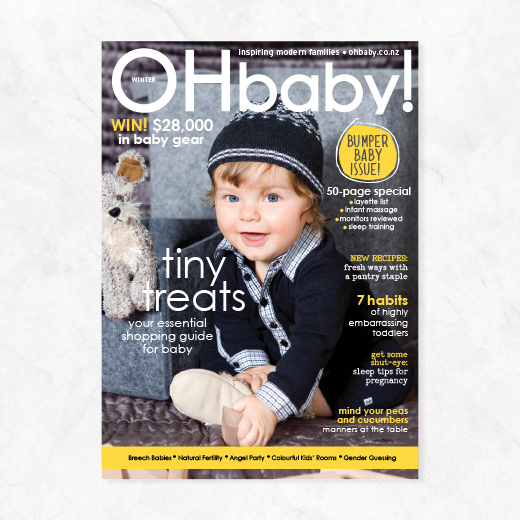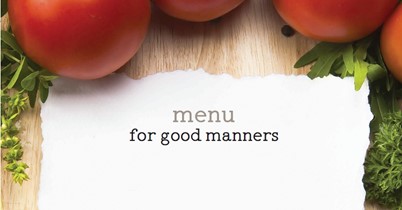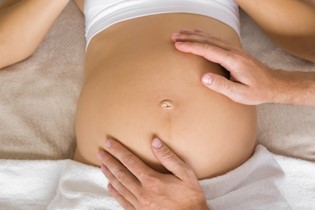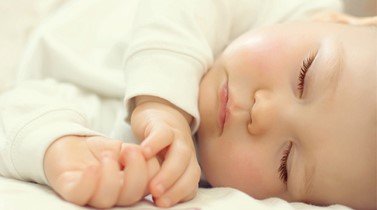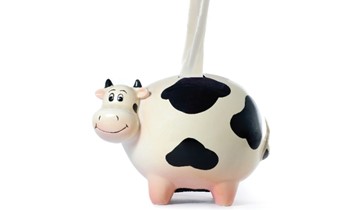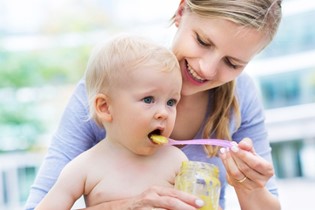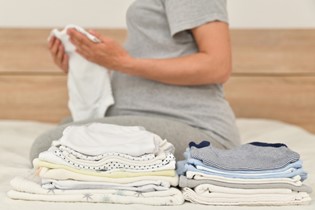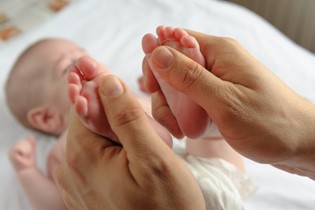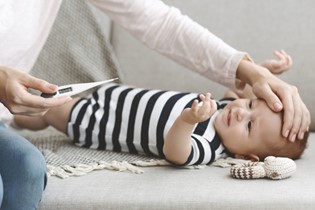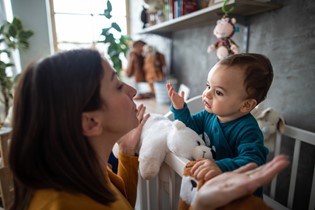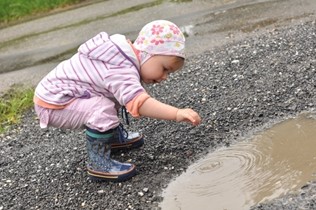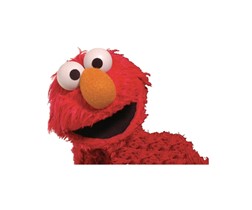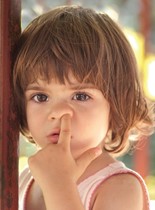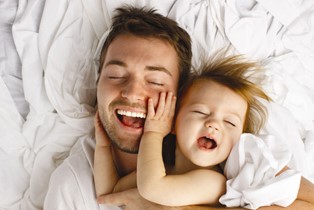How you can help baby form those first words
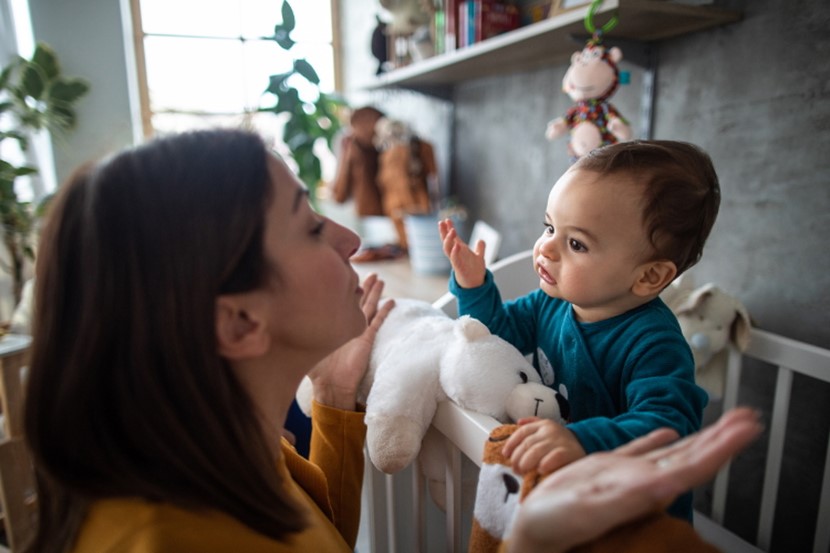
Some babies move around more in the womb when they hear certain sounds - their mum's voice or music. This suggests that babies in utero are already finding sound enjoyable and are responding to it. But how can you help get your baby talking?
Pre-verbal skills
You can expect your baby's first word around her first birthday, but long before she utters that first word, she will have been busy developing her pre-verbal skills. There are many things parents can do to encourage those early skills.
- From as early as three months you can start developing attention skills. While she's lying down hold a favourite toy above her head and slowly move it from side to side. She should start to follow the movements with her eyes and often turn her head as well. Alternatively, during tummy time roll a ball back and forth in front of your baby and watch as she turns her head - it's a Wimbledon spectator watching centre court!
- You will encourage her to make eye contact by holding objects you are talking about near your face.
- When your baby is about nine months encourage her to imitate big movement (gross motor) skills like clapping, waving and raising her arms or legs.
- A conversation at its most basic is people taking turns with words. So from around 12 months you can start to develop turn-taking skills by throwing and catching a ball (which also uses all the visual tracking skills babies learnt when they were younger).
- From 12 months your baby is starting to share her attention with you regarding things she's interested in. Make an effort to follow your child's point of interest by getting down to her level physically, so you are not standing over her, and joining her in whatever she is playing with. Follow her lead during play (don't take over!) and share her interest rather than trying to make her share yours.
- It's important to remember that most of the meaning of our communication is carried in our facial expression and body language. Make sure you face your baby when you talk to her so she can use her eyes as well as her ears when learning about communication.
Say what?
It can be difficult to know how much is too much when talking to your baby, especially if you are home all day together. As you are going about your day with your baby talk about what you are doing and why. For instance, when you are changing her nappy talk her through the stages. Balance this talking with periods of play where you use fun noises - "brrrmmm" for a car or animal sounds when playing with toy animals.
Some people make a conscious effort to talk to their baby in a sing-song voice and this is known as "motherese" (though it is certainly not exclusive to mothers). Most adults will find themselves using a higher than normal pitch and one or two word phrases when talking to babies. Even older children will use motherese.
Research has shown that rather than dumbing down, motherese actually helps highlight important parts of speech, making it easier for a baby to understand. When we think that an early goal is for a child to imitate our words and actions it makes sense for us to spend at least part of the time talking to her using simpler, more animated language.
Speech sounds develop at a different rate: the earliest sounds to develop are the vowels and you may hear your baby making strings of vowel sounds as she plays with her tongue, making "words". Early consonants include "b" and "m". These are very visual sounds, that is your baby can see you making them with your lips and she will start to make these sounds as her imitation skills develop. It can be worthwhile to spend some time (as long as her interest will hold) in front of a mirror and copying each other's facial expressions and sounds while watching your baby trying to contort her face into new positions.
First words
A first word is defined as a syllable that is consistently used in reference to something in your child's environment. Don't be surprised if the first word is a long way off the adult equivalent, as baby's speech sound system is not yet as sophisticated as yours so she is doing her best with what she has.
You can expect baby's first word to come through at around 12 months. It is often a follow-on from sounds they have used a lot in babble; "b" and "m" are early developing sounds because they are easily seen on your lips when you are talking to your child.
Sounds such as "s" and "l" come much later because a baby can't see what you are doing with your tongue.
"Dada" also comes through early as babies often produce the "d" sound as they practise pushing their tongues to the roof of their mouths. Often baby's first attempt at Mama and Dada will not be an attempt at your name but her playing with her tongue to produce sounds. It will shape into a word when she sees how excited it makes you to hear her making these "words". You will be able to tell when a baby is using her first words as she will be using a consistent set of sounds and looking at you with intent because she is trying to tell you something.
It is impossible to predict what your child's first word will be. What we do know is the first word is most likely to be something of high interest or high motivation such as "light", "woof" or "fish". Some children may say "dada" long before "mumma" - don't worry, they don't love Dad more, rather, Dad may be out lots and his absence becomes a topic of conversation between you and your child, eg, "Dada gone!"
Baby signs
Baby sign language is becoming increasingly popular. There is a lot of evidence that suggests if a child has delayed language then using sign language can help to promote language development. In a child with normally developing language, sign can be used to bridge the gap between the development of language and what a child is trying to communicate. If you decide to use baby sign it is best to start at an early age, though you may not see real pay-offs until the child is much older. For more see nzslbabysign.nz
If you have any concerns regarding your child's communication development please contact a Special Education office (www.minedu.govt.nz) or a private speech and language therapist.
Camilla Peet and Christian Wright are speech language therapists who work privately within the Wellington region.

AS FEATURED IN ISSUE 18 OF OHbaby! MAGAZINE. CHECK OUT OTHER ARTICLES IN THIS ISSUE BELOW
